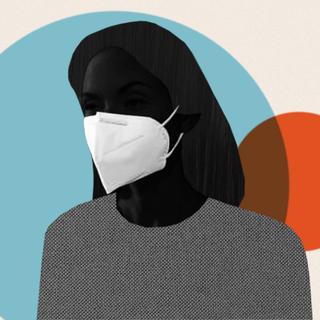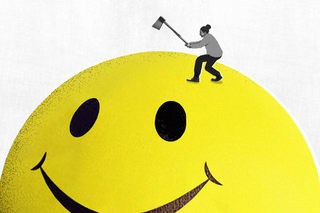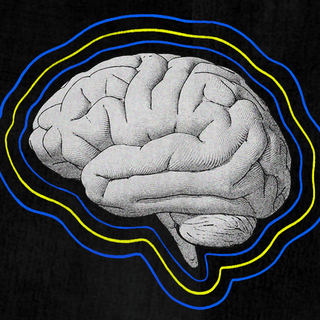
The Science Behind Why We Find Perky, Happy People Unbearable
Research shows we perceive unfailingly cheerful people as ignorant, naive, or not capable of critical thinking.

The start of the 1930 song But Not For Me goes something like this: “I never want to hear from any cheerful pollyannas/who tell me fate supplies a mate/that’s all bananas.” The George and Ira Gershwin-song refers to the fictional character of Pollyanna, who has become shorthand for someone with an extremely positive outlook. Her philosophy, for instance, is packaged as “The Glad Game,” where she looks for something to be glad of irrespective of how morose the situation is.
You could see why pollyanas of the world grate on George and Ira. The morning perkiness, perpetual smile, an energy level that just doesn’t budge, “never give up” tattooed on their hearts and dating profiles — it’s a solar storm of unbridled enthusiasm. There’s just something about bright and shiny people that annoys others. Turns out, the vexation is not completely irrational.
One thing cheerful people don’t have going for them is optic management. Research shows people who are unfailingly happy are perceived as naive and gullible. A 2016 study, titled “Ignorance is Bliss,” added to this and argued that we’re more inclined to take advantage of super-happy people — because their cheeriness passes off as naïveté. The researchers demonstratedthis throughsix experiments, which went something like this:
“In one experiment, the researchers gave their test subjects a chance to earn money off others by giving them biased advice — a situation somewhat analogous to a used car salesperson earning more commission by persuading a buyer to pay too much for a car. They found that their test subjects gave people who appeared to be very happy significantly more biased advice. In a separate study, they found that their test subjects were more likely to choose very happy people as negotiation partners, because they thought they would be easier to exploit,” Ana Swanson explained in the Washington Post.
Think Mr. Peanutbutter from Bojack Horseman, the golden retriever with unflapping cheeriness. Or Parks and Recreation’s Chris Traeger. They may be a “good dog” and a “good person,” but their glee can most definitely tick people off.
What is perceived as ignorance also morphs into the notion that happy people stand at odds with critical thinking. Look at it this way: someone walks up to you today — on the heels of the third wave of a global pandemic — and tells you to be optimistic and count your blessings. Or how things will get better despite the bleakness of the world embedded in national headlines. With so much misery, clearly, the person may either ignore things or compartmentalize them — “elevating the good and wilfully ignoring the rest,” as The Cut explained.
“We assume they are not looking deeply into the national headlines; they’re not looking deeply at the world around them. We assume that if they’re happy, it’s because they’re not thinking carefully or investigating things around them,” Maurice E. Schweitzer, one of the researchers, said.
Related on The Swaddle:
Why Do We Cry When We Are Happy?
Plus, it doesn’t help that the ever-perky people may sometimes be dismissive of others’ trials and have “don’t worry be happy” printedon their clothes. Research published in PLOS One found “permanently happy” participants tend to overestimate their power of empathy. In that, they struggle to detect downward shifts in emotions. Another 2010 study even posited that overt happiness can make people selfish. Researchers conducted three experiments where they asked participants to distribute raffle tickets to others. The conclusion? “Positive mood increased selfishness, and sad mood produced greater fairness.”
This can sometimes venture into the realm of “toxic positivity.” “Toxic positivity can be described as insincere positivity that leads to harm, needless suffering, or misunderstanding,” Gayani DeSilva, a U.S.-based psychiatrist, told Health. Moreover, “persistent reminders to reflect on ‘how good we have it’ in the midst of strife and struggle don’t make sadness, fear or anxiety dissipate, research shows,” Allie Volpe explained in an article.
When we frame negative emotions as a sign of “weakness” or “failure,” it sometimes works to invalidate real feelings of fear and anxiety. Naturally, the bearer of this positivity irks people’s sensibilities.
True, it’s no fun to be around someone who’s always sulking. But “it’s one thing to say the glass is half full to inspire optimism; a wholly different thing to tell a parched person with no access to water to make do with what’s in front of them,” an article on The Swaddle explained earlier this year.
“There’s nothing wrong with being positive: stories of inspiration, slivers of hope are in short supply and need replenishment every now and then. Feeling grateful for having a job, keeping your family safe, balancing work with personal life are small wins and help keep things in perspective. But positivity is not always the beacon of good vibes it’s made out to be.”
This is not a revolution against the pollyannas of the world. But a plea for reason: to be merry, but mindful; to have their eggs, but sometimes, with the sunny side down.
Saumya Kalia is an Associate Editor at The Swaddle. Her journalism and writing explore issues of social justice, digital sub-cultures, media ecosystem, literature, and memory as they cut across socio-cultural periods. You can reach her at @Saumya_Kalia.
Related


In a First, Scientists Discover Brain Signals Linked to OCD
